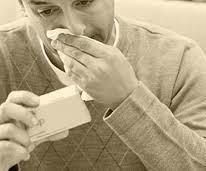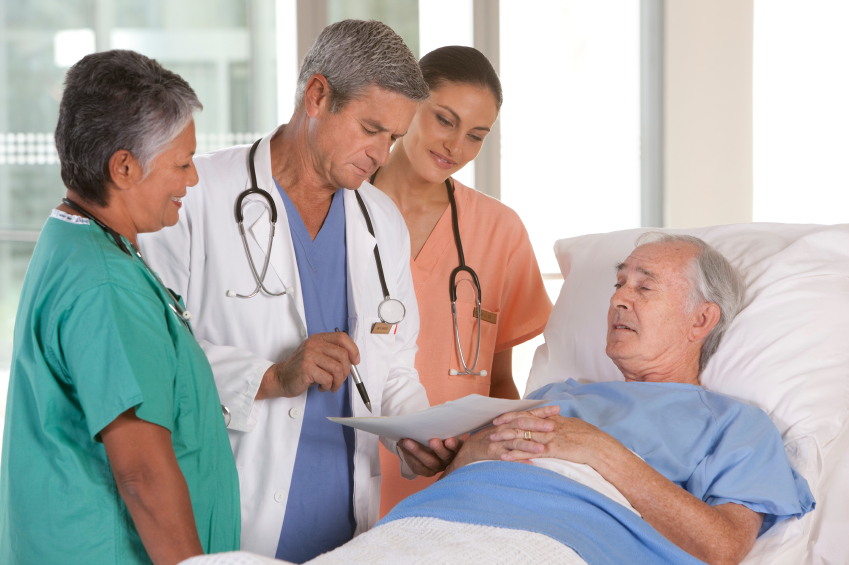
 For the last week I have had a cold. I usually get one each winter. I have two kids in school and they bring home a lot of viruses. I also work in a hospital, which tends (for some reason) to have lots of sick people. Although this year I think I caught my cold while traveling.?? Ia??m almost over it now, but ita??s certainly a miserable interlude to my normal routine.
For the last week I have had a cold. I usually get one each winter. I have two kids in school and they bring home a lot of viruses. I also work in a hospital, which tends (for some reason) to have lots of sick people. Although this year I think I caught my cold while traveling.?? Ia??m almost over it now, but ita??s certainly a miserable interlude to my normal routine.
One thing we can say for certain about the common cold — ita??s common. It is therefore no surprise that there are lots of cold remedies, folk remedies, pharmaceuticals, and a??alternativea?? treatments. Finding a a??cure for the common colda?? has also become a journalistic cliche — reporters will jump on any chance to claim that some new research may one day lead to a cure for the common cold. Just about any research into viruses, no matter how basic or preliminary, seems to get tagged with this headline.??(Ita??s right up there with every fossil being a a??missing link.a??)
But despite the commonality of the cold, the overall success of modern medicine, and the many attempts to treat or prevent the cold — there are very few treatments that are actually of any benefit. The only certain treatment is tincture of time. Most colds will get better on their own in about a week. This also creates the impression that any treatment works — no matter what you do, your symptoms are likely to improve. It is also very common to get a mild cold that lasts just a day or so. Many people my feel a cold a??coming ona?? but then it never manifests. This is likely because there was already some partial immunity, so the infection was wiped out quickly by the immune system. But this can also create the impression that whatever treatment was taken at the onset of symptoms worked really well, and even prevented the cold altogether.
What Works
There is a short list of treatments that do seem to have some benefit. Nonsteroidal anti-inflammatory drugs (NSAIDs), like aspirin, ibuprofen, and naproxen, can reduce many of the symptoms of a cold??– sore throat, inflamed mucosa, aches, and fever. Acetaminophen may help with the pain and fever, but it is not anti-inflammatory and so will not work as well. NSAIDs basically take the edge off, and may make it easier to sleep.
Decongestants may also be of mild benefit. Antihistamines have a mild benefit in adults, but not documented in children. There are also concerns about safety and side effect in children. Overall, other than some TLC and NSAIDS (although not aspirin) parents should probably not give their children anything for a cough or cold. The benefit of antihistamines in adults is very mild and of questionable value. There is better evidence for antihistamines in combination with a decongestant, but the benefits are still mild. Nasal sprays are probably better than oral medication, and overall use a much lower dose. These treatments do not seem to have any effect on the course of the cold, but may relieve symptoms. Perhaps the best use of nasal spray decongestants is just prior to going to sleep, to reduce a post nasal-drip cough that can be very disruptive to sleep.
There is weak evidence for the use of hot liquids. There does not seem to be any advantage to chicken soup over other hot liquids, like tea. They may provide a symptomatic benefit in clearing the sinuses and loosening phlegm so that it can be cleared easier. Since this is a low risk intervention (just make sure the liquids are not too hot for small children), if it makes you feel better, go for it. There also may not be any advantage over just humidified air to help keep the membranes moist. Honey may be soothing, but there is no evidence of real benefit.
A neti pot looks like a small teapot with a thin spout that is meant to pour hot liquids up your nose to irrigate your sinuses. The evidence for the use of neti pots is mixed. Briefly — there is no evidence for their routine or preventive use, and in fact they may be counterproductive. However, they may be useful for acute symptoms of sinus congestion. The concept is actually simple and well established — irrigating an infected space to help wash out the germs and prevent impaction. There is probably no benefit to using a neti pot for a regular cold — unless you have significant sinusitis and feel that your sinuses are clogged. And again, this is probably no better than just moist air or hot liquids.
What Doesn’t Work
In short — everything else.
Over-the-counter (OTC) cough suppressants simply do not work and are not safe in children. If you have a serious cough, the kind that can cause injury, you need prescription medication (basically narcotics, like codeine). Also, in most cases using a cough suppressant makes no sense, especially in combination with an expectorant. You want to cough up the mucus and phlegm. If your cough is caused by a sore throat, take an NSAID. If ita??s post nasal drip, treat the congestion as above. And if ita??s severe, see your doctor. But dona??t bother with OTC cough suppressants.
I have covered echinacea previously in detail — it does not work for the prevention or treatment of the cold or flu.
Vitamin C has been a favorite since Linus Pauling promoted in decades ago. But decades of research has not been kind to this claim. The research has failed to find a consistent and convincing effect for vitamin C in treating or preventing the common cold. For routine prevention, the evidence is dead negative. For treating an acute infection, there is mixed evidence for a possible very mild benefit, but this is likely just noise in the research.
What about homeopathic treatments? Since homeopathy is one big pseudoscientific scam, its products are nothing but water, and they dona??t work for anything — I dona??t need to go into more detail here.
Finally, there is some evidence that zinc or zinc oxide may reduce symptoms of a cold, but this evidence is mixed and unconvincing at present. At best the benefit is very mild (again, likely within the noise of such studies). Further, zinc comes with a nasty taste (something that also complicates blinding of studies) and many people may find this worse than symptoms it treats. Zinc oxide nasal sprays have been linked to anosmia (loss of smell, which can be permanent) and is certainly not worth the risk to treat a self-limited condition like the cold — even if they did work, which is unclear.
Conclusion
The common cold remains a difficult syndrome to treat effectively. In most cases it is best to just let the cold run its course. Limited use of NSAIDs and decongestants may be helpful. Otherwise, if there is an intervention that is risk free and makes you feel better, do it. We all need to feel comforted when wea??re sick. But dona??t waste your time or money on other medications, supplements, herbs, or other concoctions. There are also endless snake-oil products out there, too many to deal with here. A good default position is simply not to believe any product that claims to prevent or treat the common cold. And dona??t be compelled by the anecdotal evidence of your neighbora??s cousina??s boss. Everyone thinks they have the secret to treating the cold, but no one does. Ita??s all placebo effect and confirmation bias.

h





 For the last week I have had a cold. I usually get one each winter. I have two kids in school and they bring home a lot of viruses. I also work in a hospital, which tends (for some reason) to have lots of sick people. Although this year I think I caught my cold while traveling.?? Ia??m almost over it now, but ita??s certainly a miserable interlude to my normal routine.
For the last week I have had a cold. I usually get one each winter. I have two kids in school and they bring home a lot of viruses. I also work in a hospital, which tends (for some reason) to have lots of sick people. Although this year I think I caught my cold while traveling.?? Ia??m almost over it now, but ita??s certainly a miserable interlude to my normal routine.
 Do you feel patients are the most important part of the medical (healthcare) team?
Do you feel patients are the most important part of the medical (healthcare) team?
 Stroke killed 2,000 fewer
Stroke killed 2,000 fewer